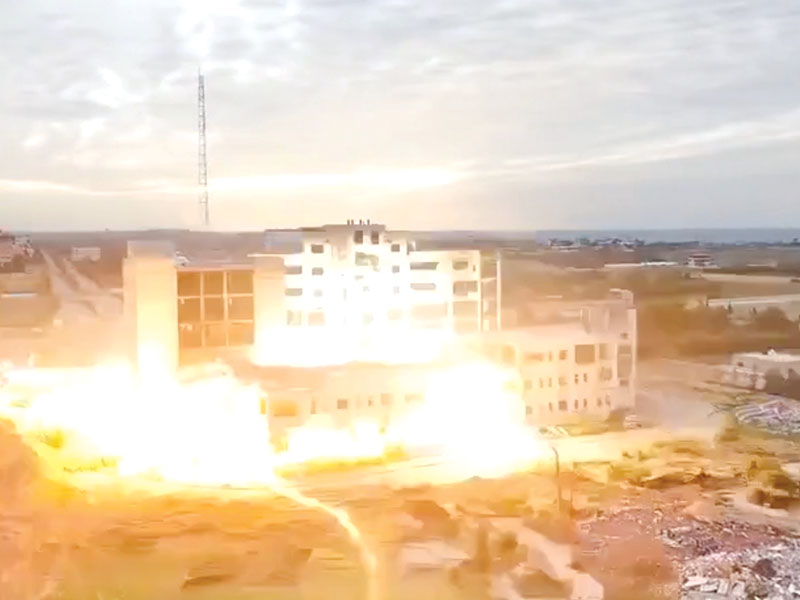Palestine: Educide charge

Al Israa University under fire: intentional plan?
Israel has been accused of deliberately targeting universities and academics in Gaza as part of a strategy branded “educide”. Following the controlled demolition of Al-Israa University, Israeli army footage of which was widely shared on social media, every single higher education institution in Gaza is believed to have either been destroyed or severely damaged since the invasion began.
Samia Al-Botmeh, assistant professor of economics at Birzeit University in the West Bank, told Times Higher Education that the elaborate effort required to destroy large public buildings such as Al-Israa meant that it could only be part of an intentional plan to make Gaza “uninhabitable”. “The destruction of the education sector is part of this overarching strategy of the destruction of every aspect of services in Gaza that make life there possible,” she says.
Recent figures from Euro-Med Human Rights Monitor indicate that Israeli military action has killed at least 94 university professors in Gaza since the country began its retaliation for Hamas’ October 7 attacks, as well as hundreds of lecturers and thousands of students.
The organisation claimed that Israel had “targeted academic, scientific, and intellectual figures in the Strip in deliberate and specific air raids on their homes without prior notice”.
Neve Gordon, an Israeli professor of human rights law at Queen Mary University, London, says “academia has been destroyed” in Gaza as part of an “educide”. “The damage of three months will take 10-20 years to recover from,” says Prof. Gordon, vice-president of the British Society for Middle East Studies.
Israel has defended the bombing of some universities by claiming that they were being used as training camps for Hamas, but Dr. Al-Botmeh says education is being targeted because it is a “survival mechanism” for Palestinians. “We see it as a mechanism of resistance, and, of course, Israel understands that, so is trying to undermine our capacity to survive, to resist, and our capacity to continue as a people,” she says.
Elham Kateeb, dean of scientific research at Al-Quds University, says all Palestinian universities in the West Bank are delivering education through distance learning and have tailored in-person teaching to address safety concerns on the roads and challenges at checkpoints. “Despite the setbacks, universities can play a pivotal role in leading Palestinians towards their goals and state-building. This commitment is embedded in their core missions of education, research and community service,” says Kateeb.

















Add comment